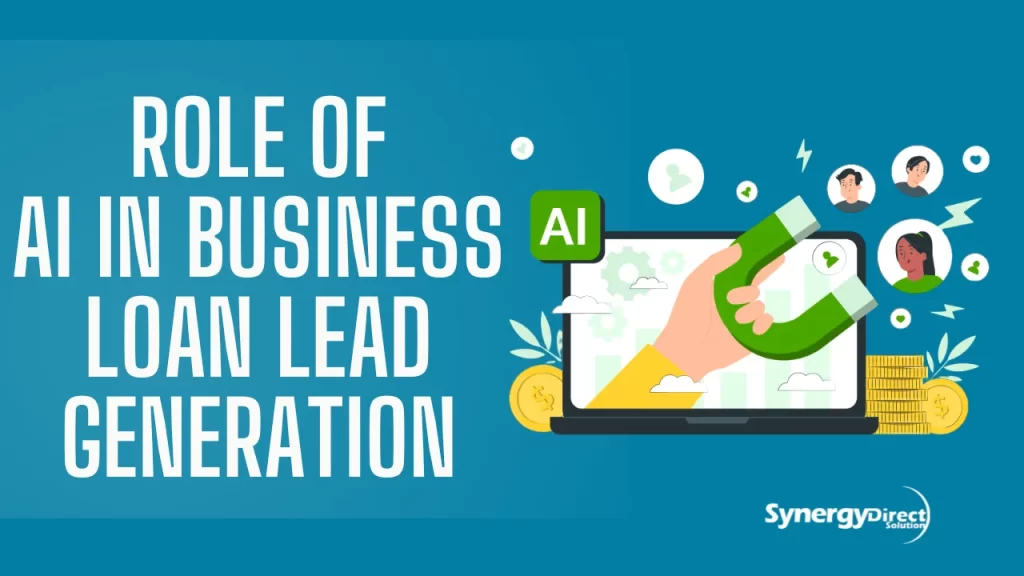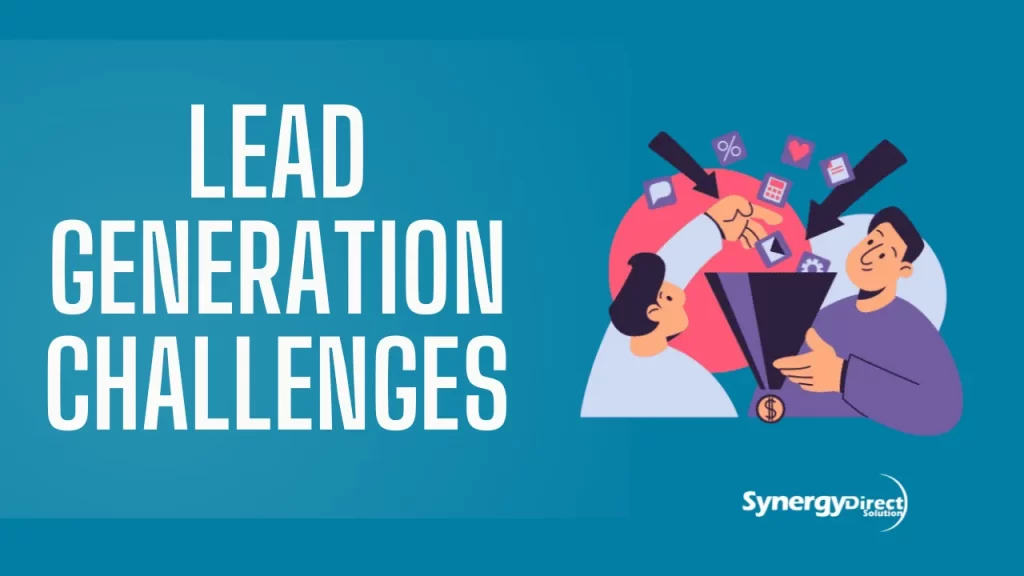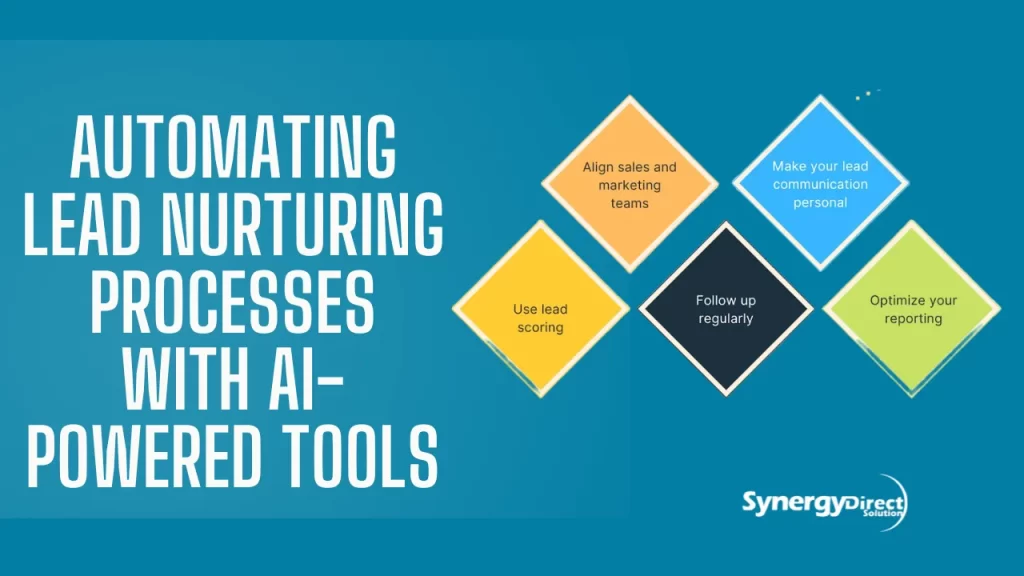The Role of AI in Business Loan Lead Generation
The financial landscape has dramatically transformed in the last few decades, thanks to advances in technology. The use of Artificial Intelligence (AI) has revolutionized the way businesses operate, including the way they manage and process loans. AI’s impact on business loan lead generation is profound, offering greater accuracy, speed, and efficiency in targeting potential borrowers. In this article, we will explore the various ways AI contributes to business loan lead generation, its benefits, and how it is shaping the future of financial services.
How AI is Transforming the Landscape of Business Loan Lead Generation?
AI is revolutionizing the business loan lead generation landscape by automating and optimizing key processes, making it more efficient, targeted, and personalized. Traditional methods of lead generation for business loans often involved manual outreach and generic marketing strategies, which resulted in low conversion rates and wasted resources.
However, AI leverages advanced algorithms, machine learning, and data analytics to identify high-potential leads with greater accuracy. By analyzing large sets of data, including credit histories, business performance metrics, and market trends, AI can predict which businesses are most likely to need and qualify for a loan.
Additionally, AI tools such as chatbots and automated email campaigns can engage leads in real-time, offering personalized financial solutions tailored to their unique needs. This level of personalization not only improves customer experience but also significantly enhances the efficiency of the lead generation process, allowing financial institutions to focus on high-value prospects and boost overall loan conversion rates.
Furthermore, AI-driven systems can optimize lead scoring, ensuring that lenders allocate resources effectively by focusing on the leads most likely to convert into long-term clients. In sum, AI is not only streamlining the process of generating and nurturing business loan leads but also transforming how lenders approach and manage their client relationships.
The Future Role of AI in Business Loan Lead Generation
The future of AI in lead generation looks incredibly promising, with advancements in machine learning, natural language processing, and predictive analytics set to redefine how businesses find and engage with potential customers. AI will become increasingly adept at not only identifying high-quality leads but also anticipating customer needs and behaviors with remarkable precision.
As AI continues to evolve, it will enable more personalized marketing strategies, providing tailored content, products, and services to individual prospects in real time. The use of chatbots, voice assistants, and automated systems will streamline communication, ensuring faster response times and improving customer experience.
Additionally, AI will play a pivotal role in integrating and analyzing data from various sources, creating a more holistic view of potential leads and allowing businesses to make better-informed decisions. As these technologies continue to mature, AI will not only enhance lead generation efficiency but also help build long-term customer relationships, ultimately transforming the future of business growth.
How to Solve Lead Generation Challenges with AI?
Lead generation is a critical aspect of any business, but it often comes with a set of challenges that can hinder growth. These challenges can include identifying high-quality leads, managing large volumes of data, personalizing communication, and maintaining consistent follow-up. Fortunately, AI offers powerful solutions to address these issues, making lead generation more efficient, accurate, and scalable. Here are some key ways AI can solve common lead generation challenges:

1. Identifying High-Quality Leads with Predictive Analytics
One of the most common challenges in lead generation is determining which leads are worth pursuing. Many businesses waste resources on leads that are unlikely to convert, leading to a low return on investment. AI, particularly through predictive analytics, helps solve this issue by analyzing past behavior, demographics, and engagement patterns to identify leads that are most likely to become customers.
Predictive models use historical data to predict the probability of a lead converting. For instance, AI can evaluate factors such as a business’s financial health, industry trends, and past purchasing behavior to flag high-quality leads. This allows businesses to focus their efforts on the leads with the greatest potential, increasing the efficiency of their sales and marketing teams.
2. Automating Time-Consuming Tasks
Lead generation involves numerous repetitive tasks, such as data entry, follow-up emails, and lead nurturing. These tasks can be time-consuming and prone to human error, which can slow down the lead generation process and lead to missed opportunities. AI can automate many of these tasks, freeing up valuable time for sales and marketing teams to focus on more strategic activities.
AI-powered chatbots, for example, can interact with website visitors, answer frequently asked questions, and collect relevant lead information without requiring any human intervention. Additionally, AI can automate follow-up emails, schedule appointments, and send personalized offers based on a lead’s behavior. This level of automation ensures that no lead is neglected and that follow-ups are timely and relevant.
3. Personalizing Communication at Scale
Personalization is crucial in lead generation because it helps establish a connection with potential customers. However, manually personalizing messages for every lead can be overwhelming, especially when dealing with large volumes of prospects. AI can solve this challenge by enabling hyper-personalized communication at scale.
AI analyzes data from multiple touchpoints, such as social media interactions, browsing behavior, and past purchases, to create a detailed profile of each lead. Using this information, AI can craft personalized messages, product recommendations, and content that resonate with each individual lead. Whether through email campaigns or dynamic website content, AI ensures that every communication feels tailored to the lead’s specific needs and interests, significantly increasing the likelihood of conversion.
4. Improving Lead Scoring and Prioritization
Lead scoring is the process of ranking leads based on their likelihood to convert. Traditional methods often rely on subjective judgment or basic demographic information, which can lead to inaccurate scoring and missed opportunities. AI can enhance lead scoring by incorporating a wider range of factors and applying machine learning algorithms to assess leads more objectively.
AI systems can consider a variety of data points, such as engagement levels, social media activity, and behavioral patterns, to assign more accurate scores to leads. These systems continuously learn and adapt, ensuring that lead scores are always up-to-date and reflective of the lead’s true potential. This improves the efficiency of the sales team by helping them prioritize the most promising leads, ultimately increasing conversion rates.
5. Overcoming Data Overload
With the increasing volume of data available from various sources, managing and analyzing it to extract meaningful insights has become a major challenge for businesses. Without AI, manually sifting through vast amounts of data can be overwhelming, and valuable insights may be overlooked.
AI-powered analytics tools can process large datasets in real-time, identifying patterns and trends that humans might miss. By automating data analysis, AI provides actionable insights that help businesses refine their lead generation strategies. For example, AI can identify which channels are generating the most leads, which types of content are most engaging, and which leads are showing signs of readiness to buy. With this information, businesses can adjust their marketing and sales efforts accordingly, ensuring they are focusing on the most effective strategies.
6. Enhancing Lead Nurturing and Follow-Up
Lead nurturing is essential for converting prospects into customers, but it can be challenging to maintain consistent communication with all leads, especially over extended periods. AI helps overcome this challenge by automating the nurturing process and ensuring that leads are consistently engaged.
AI systems can track lead behavior and send personalized follow-up messages based on the lead’s actions. For example, if a lead downloads an ebook or watches a webinar, AI can automatically send a follow-up email offering additional resources or a special offer. AI can also track engagement levels, identifying when a lead is showing signs of disengagement and triggering re-engagement campaigns to bring them back into the sales funnel.
7. Scaling Lead Generation Efforts
As businesses grow, the volume of leads increases, making it difficult to manage and engage with every prospect individually. AI allows businesses to scale their lead generation efforts without sacrificing quality or personalization. AI systems can handle vast numbers of leads simultaneously, ensuring that each one receives the attention it needs.
For instance, AI-powered chatbots can converse with thousands of website visitors at the same time, answering questions, qualifying leads, and capturing relevant data. AI can also segment leads based on criteria such as industry, company size, and purchase intent, ensuring that the right message is delivered to the right group at the right time. This scalability enables businesses to handle growing lead volumes without overwhelming their teams.
8. Enhancing Lead Generation ROI
Ultimately, the goal of any lead generation effort is to maximize return on investment (ROI). AI contributes to this by increasing the efficiency and effectiveness of lead generation strategies. By automating tasks, improving lead scoring, personalizing communication, and providing real-time insights, AI ensures that businesses are investing their resources in the right places.
Automating Lead Nurturing Processes with AI-Powered Tools
Automating lead nurturing with AI-powered tools is revolutionizing how businesses engage with prospects and convert them into loyal customers. Traditional lead nurturing often involves manual follow-ups, email marketing, and phone calls, which can be time-consuming and inconsistent. However, AI-powered tools offer a more efficient, personalized, and scalable solution. By utilizing machine learning algorithms and data analytics, these tools can segment leads based on various criteria, such as behavior, interests, and engagement patterns, allowing businesses to tailor their communication strategies more effectively.
AI tools such as chatbots, automated email sequences, and predictive analytics platforms can respond to leads instantly, delivering relevant content and personalized offers at the right time. For instance, AI-driven chatbots can engage visitors on a website, answer their questions in real-time, and collect valuable data to determine their intent. This data is then used to send targeted content or follow-up emails, nurturing leads through the sales funnel at the optimal pace. These tools also monitor lead interactions and engagement levels, adjusting the communication flow to ensure leads are not overwhelmed or ignored, ultimately improving the chances of conversion.
Furthermore, AI tools can identify when a lead is ready to make a decision, triggering timely interventions from sales teams to close the deal. Automation not only reduces human error but also ensures that no lead is left behind due to oversight. With AI handling repetitive tasks, businesses can focus their resources on higher-value activities, improving efficiency and lead conversion rates. In essence, AI-powered lead nurturing tools create a seamless, personalized experience that moves prospects closer to making a purchasing decision, making the entire process faster, more effective, and more aligned with customer needs.

Case Studies of Successful AI Implementations in Lead Generation
AI has revolutionized lead generation by enabling businesses to automate and optimize various stages of the sales funnel, improving efficiency, personalization, and conversion rates. One of the most notable examples is HubSpot, which uses AI-driven lead scoring and nurturing to automate the qualification process. Their machine learning algorithms analyze interactions like website visits, content downloads, and email engagement to predict the likelihood of a lead converting into a customer. This enables sales teams to focus on high-potential prospects, improving efficiency and boosting conversion rates.
In the financial services sector, Zest AI leverages machine learning to analyze alternative data for more accurate credit risk assessments. This has enabled financial institutions to qualify loan applicants more efficiently by identifying high-quality leads, reducing defaults, and speeding up approval processes.
Similarly, Salesforce’s Einstein AI enhances lead scoring, helping sales teams prioritize prospects based on data-driven insights. By automating lead qualification and predicting the best time for outreach, these AI tools ensure that businesses focus their efforts where they’re most likely to succeed.
In the automotive industry, BMW uses AI-powered chatbots to engage website visitors and qualify leads in real-time. The chatbot gathers essential customer data, such as car preferences and budget, and routes high-quality leads to the sales team. This has significantly streamlined the lead generation process, resulting in faster response times and higher conversion rates.
These case studies highlight the diverse applications of AI in lead generation, demonstrating how businesses across different industries can leverage machine learning and automation to improve lead qualification, engagement, and ultimately, sales outcomes. As AI technology continues to advance, its potential to optimize and enhance lead generation strategies will only grow.
Conclusion
AI has undeniably transformed the landscape of business loan lead generation, enabling financial institutions and businesses to operate more efficiently and effectively. From automating lead nurturing processes to optimizing lead scoring and personalizing communication, AI-powered tools have revolutionized how businesses identify, engage, and convert potential borrowers. With its ability to analyze vast amounts of data and predict customer behavior, AI ensures that resources are allocated to the most promising leads, ultimately increasing conversion rates and ROI. Case studies across various industries—from financial services to automotive—demonstrate the power of AI in enhancing lead generation efforts and driving business growth.
FAQS
1. How does AI identify high-quality business loan leads?
AI uses predictive analytics and machine learning to analyze data like credit scores, business history, and online behavior to determine the likelihood of a lead converting into a loan customer.
2. Can AI replace human involvement in loan lead generation?
While AI can automate many tasks, human oversight remains essential, especially for high-value deals and personalized relationship management. AI is a tool to augment, not replace, human interaction.
3. What are the benefits of AI in business loan lead generation?
AI offers benefits such as faster lead qualification, improved personalization, real-time engagement, efficient data analysis, and higher conversion rates.
4. Is AI cost-effective for small lenders and startups?
Yes. Many AI-powered CRM and marketing tools are scalable and offer affordable plans for small businesses, making it accessible for firms of all sizes.
5. How does AI personalize communication with leads?
AI analyzes behavior, preferences, and demographics to send personalized messages via emails, chatbots, or websites, ensuring leads receive relevant and timely information.
